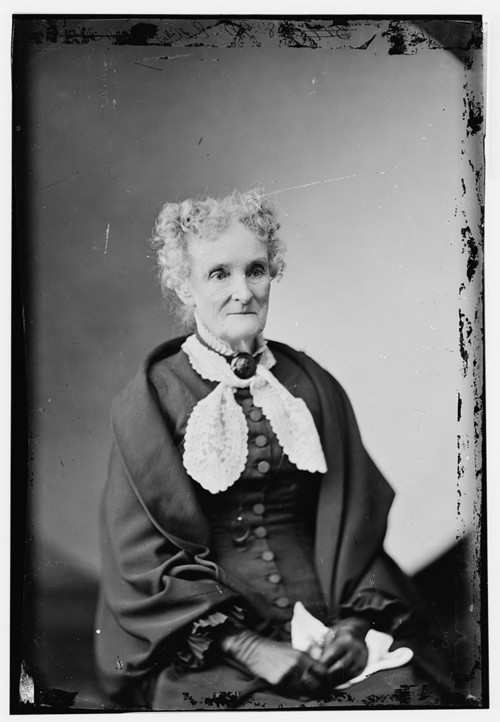Meanwhile, a more personal crisis during Jackson’s first term also drove a wedge between him and Vice President Calhoun. The Eaton Affair, sometimes insultingly called the “Petticoat Affair,” began as a disagreement among elite women in Washington, D.C., but it eventually led to the disbanding of Jackson’s cabinet.
True to his backwoods reputation, when he took office in 1829, President Jackson chose mostly provincial politicians, not Washington veterans, to serve in his administration. One of them was his friend John Henry Eaton, a senator from Tennessee, whom Jackson nominated to be his secretary of war.
A few months earlier, Eaton married Margaret O’Neale Timberlake, the recent widow of a navy officer. She was the daughter of Washington boardinghouse proprietors, and her humble origins and combination of beauty, outspokenness, and familiarity with so many men in the boardinghouse had led to gossip. During her first marriage, rumors circulated that she and John Eaton were having an affair while her husband was at sea. When her first husband committed suicide and she married Eaton just nine months later, the society women of Washington had been scandalized. One wrote that Margaret Eaton’s reputation had been “totally destroyed.”

Peggy Eaton unintentionally created a serious scandal with her beauty, wit, and loquaciousness, all of which combined with the questionable circumstances of her marriage caused Washington’s elite ladies (and thus their husbands) to spurn her. Jackson, in his obsessive adherence to a southern “code of honor”, did what no president ever did before or after: fired his entire cabinet over gossip and scandal. The photograph of Eaton shows her at a much older ager, but her gumption still shines through. “Eaton, Mrs. Margaret (Peggy O’Neill), old lady,” c. 1870-1880. Library of Congress.
John Eaton was now secretary of war, but other cabinet members’ wives refused have anything to do with his wife. No respectable lady who wanted to protect her own reputation could exchange visits with her, invite her to social events, or be seen chatting with her. Most importantly, the vice president’s wife, Floride Calhoun, shunned Margaret Eaton, spending most of her time in South Carolina to avoid her, and Jackson’s own niece, Emily Donelson, visited Eaton once and then refused to have anything more to do with her.
Although women could not vote or hold office, they played an important role in politics as people who controlled influence. They helped hold official Washington together. And according to one local society woman, “the ladies” had “as much rivalship and party spirit, desire of precedence and authority” as male politicians had. These women upheld a strict code of femininity and sexual morality. They paid careful attention to the rules that governed personal interactions and official relationships.
Margaret Eaton’s social exclusion thus greatly affected Jackson, his cabinet, and the rest of Washington society. At first, President Jackson blamed his rival Henry Clay for the attacks on the Eatons. But he soon perceived that Washington women and his new cabinet had initiated the gossip. Jackson scoffed, “I did not come here to make a cabinet for the ladies of this place,” and claimed that he “had rather have live vermin on my back than the tongue of one of these Washington women on my reputation.” He began to blame the ambition of Vice President Calhoun for Floride Calhoun’s actions, deciding “it was necessary to put him out of the cabinet and destroy him.”
Jackson was so indignant because had recently been through a similar scandal with his late wife Rachel. Her character, too, had been insulted by leading politicians’ wives because of the circumstances of her marriage. Jackson believed that Rachel’s death had been caused by those slanderous attacks. Furthermore, he saw the assaults on the Eatons as attacks on his authority.
In one of the most famous presidential meetings in American history, Jackson called together his cabinet members to discuss what they saw as the bedrock of society: women’s position as protectors of the nation’s values. There, the men of the cabinet debated Margaret Eaton’s character. Jackson delivered a long defense, methodically presenting evidence against her attackers. But the men attending the meeting—and their wives—were not swayed. They continued to shun Margaret Eaton, and the scandal was resolved only with the resignation of four members of the cabinet, including Eaton’s husband.
Candela Citations
- American Yawp. Located at: http://www.americanyawp.com/index.html. Project: American Yawp. License: CC BY-SA: Attribution-ShareAlike